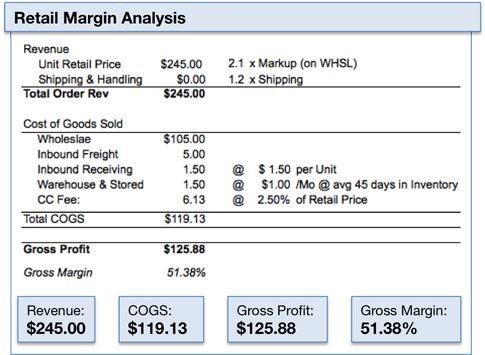Contents:


It provides its market participants with a range of settlement services to facilitate obligations emanating from their trading activities in various investment markets. The Depository Trust and Clearing Corporation is a financial services company that provides clearing and settlement services for financial markets. It is also instrumental in the automation, centralization, standardization, and streamlining of said markets. For its subsidiaries, including the Depository Trust Company and the National Securities Clearing Corporation , it oversees operations and manages financial risks. On the other hand, the National Securities Clearing Corporation was founded in 1976 to offer centralized clearing, information, settlement services, and risk management in the securities industry. The corporation further offers multilateral netting to enable brokers to offset purchasing and selling positions into a single unit payment obligation to minimize their capital requirements and exposure to risks.
DTCC created Deriv/SERV LLC In 2003 to help resolve over the counter derivatives challenges of the time. It provides automated matching and confirmation services for derivatives trades, including credit, equity, and interest rate derivatives. It also provides related matching of payment flows and bilateral netting services. Deriv/SERV’s customers include dealers and buy-side firms from 30 countries. The NSCC’S establishment came in the wake of high demand for paper stock certificates, causing the stock exchange to shut down once a week. As a result, multilateral netting was proposed, which involves several parties summing up transactions in a centralized zone instead of individual settlements.
Cloud trumps blockchain: DTCC’s TIW goes live, and no one’s … – www.waterstechnology.com
Cloud trumps blockchain: DTCC’s TIW goes live, and no one’s ….
Posted: Thu, 09 Mar 2023 08:00:00 GMT [source]
From 2006 this service was complemented by the Trade Information Warehouse , an infrastructure that records all Credit derivatives transactions, such as Credit default swaps. This proved specifically useful in September 2008 by helping authorities and market participants understand exposures to failing or fragile counterparties such as Lehman Brothers or AIG. Partly based on that experience, the G20 in 2009 decided to mandate derivatives trade reporting across all derivatives asset classes , with the reports collected by regulated Trade Repositories. The reporting mandate was subsequently enshrined in legislation in the respective jurisdictions, e.g. the Dodd–Frank Act in the U.S. and EMIR in the European Union. The DTTC is responsible for clearing, settling, and disseminating sufficient information regarding various securities products – including alternative investment options, mortgage and government-backed securities, municipal and corporate bonds, and mutual funds.
MARKET & INDEX DATA
The DTC’s settlement services result in reduced costs and increase efficiencies by serving as the central repository for millions of active securities and facilitating ownership changes for securities. At times, clearing corporations may earn clearing fees by acting as a third party to a trade. For example, a clearinghouse may receive cash from a buyer and securities or futures contracts from a seller. The clearing corporation then manages the exchange and collects a fee for this service. The size of the fee is dependent on the size of the transaction, the level of service required, and the type of instrument being traded. Investors who make several transactions in a day can generate significant fees.
- Before DTC and NSCC were formed, brokers physically exchanged certificates, employing hundreds of messengers to carry certificates and cheques.
- EuroCCP clears trades in more than 6,000 equities issues for these trading venues.
- The financial industry needed to provide security to the physical stock certificates while facilitating trade in a better way.
- DTCC subsidiaries National Securities Clearing Corporation and Fixed Income Clearing Corporation deliver highly efficient clearing services across the U.S. equities and fixed income markets, reducing risk and cost for clients, while ensuring safety and reliability in the marketplace.
Before the NSCC was founded, stock exchanges would close once a week to complete the lengthy task of processing paper stock certificates. The large volume of trading overwhelmed brokerage firms, and many chose to close every Wednesday . In May 2011, the International Swaps and Derivatives Association selected DTCC to build up a global industry-wide infrastructure to comply with the G20 mandate, and the service was started in December 2011. The trade repository service was branded Global Trade Repository in 2012.
The corporation was established in 1999 with the combined roles of the dtcc Securities Clearing Corporation and the Depository Trust Company . Consolidated source of corporate actions announcement and reference data solutions to help you enrich and reconcile operational data to enhance efficiency, increase accuracy and improve business support. DTCC Learning provides financial, technology, and career training and educational services to the global financial industry.
DTC vs. NSCC
By ensuring that trades are executed properly and on time, the settlement process contributes to investor confidence and reduces market risk; timely and accurate trades guarantee that investors won’t lose their money with solvent brokerage firms or other intermediaries. Dentzer was succeeded by William F. Jaenike, who was DTC Chairman & CEO from 1994 to 1999. Considine oversaw the merger & renamed the unified company The Depository Trust & Clearing Corporation . The first response was to hold all paper stock certificates in one centralized location, and automate the process by keeping electronic records of all certificates and securities clearing and settlement . The method was first used in Austria by the Vienna Giro and Depository Association in 1872. The DTCC is the parent institution of the Depository Trust Company , a securities depository.
DTCC white paper examines how climate-related financial risk, namely physical risk and transition risk, may impact financial market infrastructures. DTC brings efficiency to the securities industry by retaining custody of more than 1.4 million active securities issues valued at US$87.1 trillion, including securities issued in the US and more than 131 countries and territories. DTCC entered into a joint venture with the New York Stock Exchange known as New York Portfolio Clearing, that would allow “investors to combine cash and derivative positions in one clearinghouse to lower margin costs”. Federal Reserve System, a limited-purpose trust company under New York State banking law and a registered clearing agency with the U.S. The architect of the industry response to the 1960s paperwork crisis, and of what is now DTCC, was William T. Dentzer Jr., a former US public official and intelligence community member. Dentzer was the founder of DTC, and its Chairman & CEO from 1973 to 1994.
What Is the Difference Between DTC and DTCC?
After the NSCC has processed and recorded the trade, they provide a report to the brokers and financial professionals involved. This report includes their net securities positions after the trade and the money that is due to be settled between the two parties. Trade activity-based data solutions that deliver market insights to help you assess risk factors and refine your market positions to make informed business, investment, and strategy decisions.
Both the NSCC and DTC are subsidiaries of the DTCC and are tasked with clearing trades to facilitate transactions and providing depository services to members, respectively. Principal users are the owners of the DTCC, implying that they are the dealer-brokers of transactions in the financial markets. The Depository Trust Company is a subsidiary of the DTCC and is responsible for settling securities trades, moving securities for NSCC net settlements, processing corporate actions, underwriting, and other services.
BASIC and the SEC saw this indirect holding system as a “temporary measure”, on the way to a “certificateless society”. To deal with this large volume, which was overwhelming brokerage firms, the stock exchanges were forced to close every week , and trading hours were shortened on other days of the week. The DTC increases efficiency to the corporate equities by retaining custody of active security issues. Also, it facilitates the movements of securities for net settlement by the NSCC and institutional-based net settlement, which often involve security and money transfers between brokers and custodians. The financial industry needed to provide security to the physical stock certificates while facilitating trade in a better way.
DTC moves securities for NSCC’s net settlements, and settlement for institutional trades (which typically involve money and securities transfers between custodian banks and broker-dealers), as well as money market instruments. In 2007, DTC settled transactions worth $513 trillion, and processed 325 million book-entry deliveries. In addition to settlement services, DTC retains custody of 3.5 million securities issues, worth about $40 trillion, including securities issued in the United States and more than 110 other countries. Federal Reserve System, and a registered clearing agency with the Securities and Exchange Commission. The Depository Trust and Clearing Corporation is a US-based corporation that acts as a centralized clearing and settlement company for different asset classes.
Thus, the more transactions that are conducted in a day, the higher the earnings generated on the same day. However, in the case of futures contracts, clearing fees can accumulate since the per-contract fee is spread out over a long period based on the long-term position. Clearing companies may sometimes earn clearing fees because of their third-party role during a trade. For example, a clearing firm may receive securities from a seller or cash from a buyer.
Discover our rich history of serving and advancing the financial markets for over 45 years. See how DTCC’s risk management framework helps protect the industry from an array of threats. The Depository Trust Company provides clearing and settlement services by immobilizing securities and making ownership changes to securities.
In October 2009, EuroCCP began clearing and settling trades made on the Turquoise platform in 120 of the most heavily traded listed Depositary Receipts. Before DTC and NSCC were formed, brokers physically exchanged certificates, employing hundreds of messengers to carry certificates and cheques. The mechanisms brokers used to transfer securities and keep records relied heavily on pen and paper.
EQUITIES CLEARING – TRADE CAPTURE
The Corporate, Municipal, and UITs system provides all of its customers with RTTM – a single pipeline, a common processing platform, and a standardized message format for the U.S. fixed income markets. Most large U.S. broker-dealers and banks are full DTC participants, meaning that they deposit and hold securities at DTC. DTC appears in an issuer’s stock records as the sole registered owner of securities deposited at DTC. DTC holds the deposited securities in “fungible bulk”, meaning that there are no specifically identifiable shares directly owned by DTC participants. Rather, each participant owns a pro rata interest in the aggregate number of shares of a particular issuer held at DTC. Correspondingly, each customer of a DTC participant, such as an individual investor, owns a pro rata interest in the shares in which the DTC participant has an interest.
DTCC Data Services offers referential and activity-based data, delivered in fixed or configurable formats, sourced from DTCC’s transaction, reference, position and asset servicing data covering all major asset classes. As the premier post-trade market infrastructure for the global financial services industry, DTCC simplifies the complexities of data management across transaction types and asset classes, increasing transparency, mitigating risk and driving efficiencies for financial firms. Established in 1973, it was created to reduce costs and provide efficiencies by immobilizing securities and making “book-entry” changes to show ownership of the securities.

In the case of futures contracts specifically, clearing fees can accumulate for investors because long positions can spread the per-contract fee out over a longer period of time. The DTCC processes trillions of dollars of securities on a daily basis. As the centralized clearinghouse for various exchanges and equity platforms, the DTCC settles transactions between buyers and sellers of securities and plays a critical role in automating, centralizing, standardizing, and streamlining the world’s financial markets.
On 1 July 2010, it was announced that DTCC had acquired all of the shares of Avox Limited, based in Wrexham, North Wales. The second response involves multilateral netting; and led to the formation of the National Securities Clearing Corporation in 1976. The Depository Trust and Clearing Corporation consists of the Depositary Trust Company and the National Securities Clearing Corporation as its subsidiaries to facilitate the movement of securities for net settlement. The Fixed Income Clearing Corporation is an agency that deals with the confirmation, settlement and delivery of fixed-income assets in the U.S.
At this point, the NSCC provides settlement instructions to the DTCC; the DTCC transfers the ownership of the securities from the selling broker’s account to the account of the broker who made the purchase. The DTCC is also in charge of transferring funds from the buying broker’s account to the account of the broker who made the sale. The broker is then responsible for making the appropriate adjustments to their client’s account. This entire process typically happens the same day the transaction occurs. The process for institutional investors is similar to the process for retail investors.
The successful completion of a securities transaction depends on the settlement step. The settlement process ensures the timely and proper execution of trades, contributing to investor confidence and minimal market risks. At the same time, effective trade execution gives investors confidence that they will not lose their funds to intermediaries, such as brokerage firms. The corporation plays a central role in settling transactions between buyers and sellers of securities, reducing risks, and protecting the integrity of the global financial markets.
Operational resilience and security drive DTCC’s agenda – www.waterstechnology.com
Operational resilience and security drive DTCC’s agenda.
Posted: Fri, 07 Oct 2022 07:00:00 GMT [source]
The offers that appear in this table are from partnerships from which Investopedia receives compensation.
EuroCCP began operations in August 2008, initially clearing for the pan-European trading platform Turquoise. EuroCCP has subsequently secured appointments from additional trading platforms and now provides central counterparty services for equity trades to Turquoise, SmartPool, NYSE Arca Europe and Pipeline Financial Group Limited. EuroCCP clears trades in more than 6,000 equities issues for these trading venues.
- DTCC, through its subsidiaries, advances industry-leading solutions that help secure and shape the future growth and development of the global financial marketplace.
- In response to this proposal of multilateral netting, the NSCC was formed in 1976.
- At the same time, effective trade execution gives investors confidence that they will not lose their funds to intermediaries, such as brokerage firms.
- The method was first used in Austria by the Vienna Giro and Depository Association in 1872.
The exchange of physical stock certificates was difficult, inefficient, and increasingly expensive. Before 1946, the SEC had allowed for T+2 settlement , but by the early 1960s, this deadline had been lengthened to four days and then five. For example, when an investor orders securities through a professional broker, trade information is relayed to the NSCC or an equivalent clearing company for clearing services. At the end of a transaction, NSCC provides a report to the broker and any other professionals involved in the trade. The contents of the report include the amount due and the positions of the net securities after the trade. Continuous Net Settlement is an automated book-entry accounting system used by the NSCC for the clearing and settlement of securities transactions.
In response to this proposal of multilateral netting, the NSCC was formed in 1976. Brokers had to physically exchange certificates, which required them to employ people to carry certificates and checks. The process for transferring securities also relied heavily on physical recordkeeping.
It was established in 1973 to minimize costs and to facilitate the clearing and settlement of securities. It achieves its purpose by immobilizing securities and adjusting changes in the seller’s account. Other than the post-settlement services, the DTCC provides custody to securities and tax-related services to its members.
